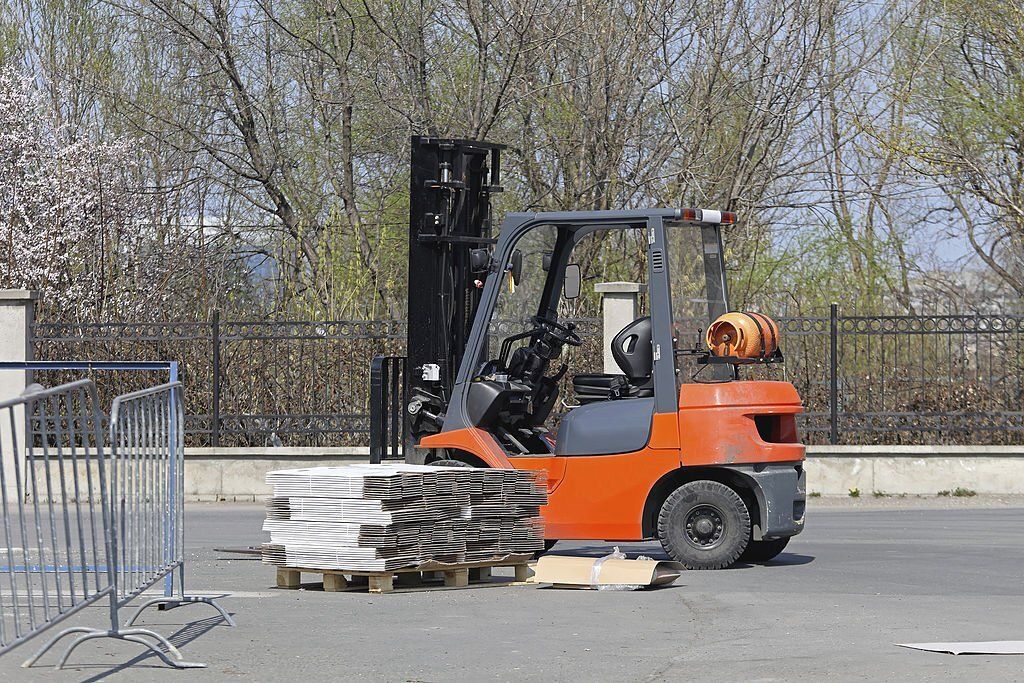Gas Forklifts: Powering Efficiency and Performance in Warehouse Operations

Gas forklifts are a popular choice in the material handling industry due to their exceptional performance and versatility. These forklifts are powered by either propane or natural gas, or they can be equipped with a dual-fuel system for added flexibility. Gas forklifts, from Larsa forklift, have emerged as a powerful solution for enhancing productivity in warehouse operations.
Advantages of using gas forklifts:
- Versatility and adaptability: Gas forklifts are highly versatile and can be used in a wide range of applications. They are suitable for indoor and outdoor use, making them ideal for warehouses with varying operational requirements.
- Power and performance: Gas forklifts offer robust power and performance, allowing them to handle heavy loads with ease. They provide excellent acceleration, lift speeds, and manoeuvrability, improving overall operational efficiency.
- Cost-effectiveness: Gas forklifts are cost-effective in terms of initial investment, fuel efficiency, and maintenance. The availability and affordability of propane and natural gas make them economical options for long-term use.
Types of gas forklifts:
- Propane forklifts: Propane-powered forklifts are widely used due to their clean-burning properties and readily available fuel source. They offer excellent performance, low emissions, and convenient refuelling.
- Natural gas forklifts: Natural gas forklifts are an eco-friendly alternative to propane. They produce fewer emissions and are often preferred in environmentally conscious warehouse operations. However, availability of natural gas refuelling infrastructure may vary.
- Dual-fuel forklifts: Dual-fuel forklifts provide the flexibility of switching between propane and gasoline or diesel fuel. This versatility ensures uninterrupted operation even when one fuel source is not readily available.
Safety Considerations for Gas Forklifts
Proper training and certification: Operators of gas forklifts should receive thorough training and certification to ensure safe operation. Training programs cover topics such as forklift handling, load management, and safety protocols.
Regular maintenance and inspections: Routine maintenance and inspections are crucial for the safe and optimal performance of gas forklifts. Regular checks should be conducted on brakes, tires, steering, and other critical components.
Ventilation and emission control: Adequate ventilation in indoor spaces is essential when operating gas forklifts. Ventilation systems and emission control devices help maintain air quality and minimise the risk of harmful emissions
Handling and storage of fuel cylinders: Proper handling and storage of fuel cylinders is vital to prevent accidents and ensure workplace safety. Cylinders should be securely stored in well-ventilated areas away from ignition sources and handled following recommended procedures.
Factors to Consider When Choosing a Gas Forklift
- Load capacity requirements: Assess the weight and dimensions of the loads typically handled in your warehouse to determine the appropriate load capacity of the forklift.
- Operating environment and conditions: Consider the terrain, floor surfaces, and operating conditions of your warehouse. This information will help you select a forklift with the appropriate tires, suspension, and features for optimal performance.
- Fuel availability and cost: Evaluate the availability and cost of propane or natural gas in your area. Ensure a reliable fuel supply and consider the long-term cost implications of using gas forklifts.
- Maintenance and service support: Research the availability of maintenance and service support for gas forklifts in your region. Access to qualified technicians and readily available spare parts is crucial for efficient maintenance and timely repairs.
- Ergonomics and operator comfort: Prioritise the comfort and ergonomics of the forklift to promote operator safety and productivity. Look for features such as adjustable seats, easy-to-reach controls, and excellent visibility.
Maintenance and Service Tips for Gas Forklifts
- Regular preventive maintenance: Implement a preventive maintenance schedule to ensure regular inspections, lubrication, and adjustments. This proactive approach helps identify potential issues before they escalate and ensures optimal performance.
- Fluid and filter replacements: Regularly replace fluids, such as engine oil, hydraulic oil, and coolant, as well as filters to maintain the forklift’s efficiency and protect its vital components.
- Troubleshooting common issues: Familiarise yourself with common issues that may arise with gas forklifts, such as starting problems or engine performance issues. Troubleshooting techniques will help address minor problems promptly.
- Engaging professional technicians: When complex issues or major repairs are required, it is advisable to engage professional technicians who are trained in gas forklift maintenance and repair. Their expertise ensures the safety and reliability of the equipment.
Frequently Asked Questions (FAQs)
Q1. What are the benefits of using gas forklifts over electric forklifts?
Gas forklifts offer higher lifting capacities, longer operating hours, and quicker refuelling compared to electric forklifts. They are also better suited for outdoor applications and provide greater versatility.
Q2. Can gas forklifts be used indoors safely?
Yes, gas forklifts can be used indoors safely with proper ventilation systems and emission control devices to ensure good air quality and compliance with safety regulations.
Q3. How often should gas forklifts be serviced?
Gas forklifts should undergo regular servicing as per the manufacturer’s recommendations. Generally, routine maintenance should be conducted every 200-250 hours of operation or at least once every three months.
Q4. What is the average lifespan of a gas forklift?
The average lifespan of a gas forklift can vary depending on factors such as usage, maintenance, and operating conditions. With proper maintenance and care, gas forklifts can typically last for 10,000 to 20,000 operational hours or more.
Q5. What are the key maintenance tasks for gas forklifts?
Key maintenance tasks for gas forklifts include regular inspections, fluid and filter replacements, lubrication, checking tire pressure, inspecting brakes and steering components, and addressing any issues promptly. Following the manufacturer’s maintenance guidelines is crucial for optimal performance and longevity.
Conslusion:
Gas forklifts are reliable workhorses that empower warehouse operations, combining efficiency, performance, and cost-effectiveness. With its proven track record and ongoing advancements, Larsa Forklift is a trusted choice for powering efficiency in warehouse operations. Contact us today to know more about our services.